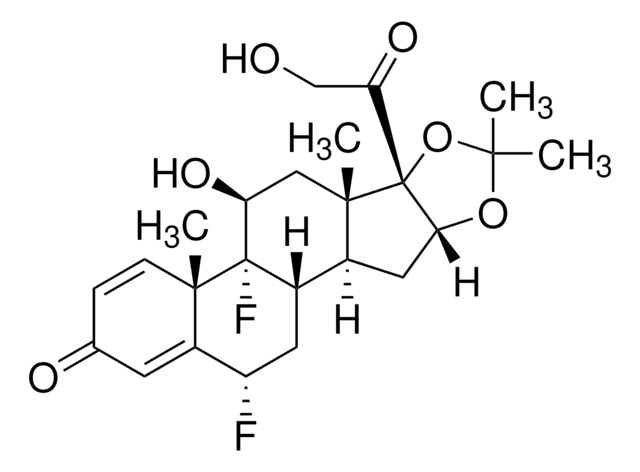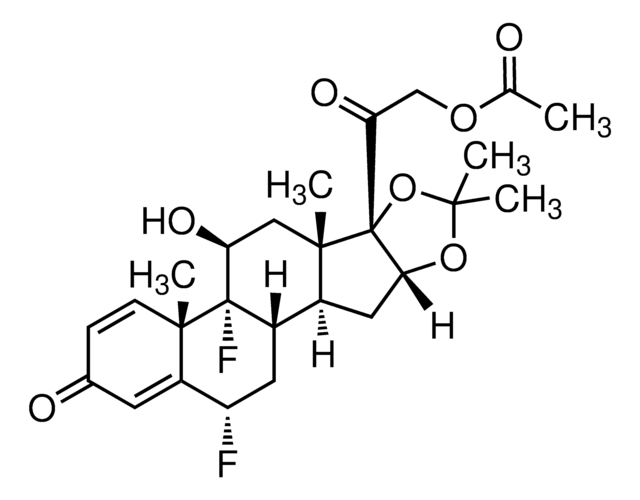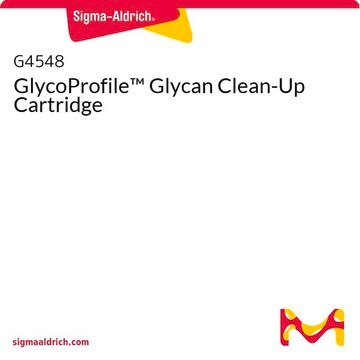F0200000
Fluocinolone acetonide
European Pharmacopoeia (EP) Reference Standard
Synonym(s):
6α,9α-Difluoro-11β,16α,17α,21-tetrahydroxy-1,4-pregnadiene-3,20-dione, 6α,9α-Difluoro-16α-hydroxyprednisolone 16,17-acetonide, 6α-Fluorotriamcinolone acetonide, Sinalar, Synandone
About This Item
Recommended Products
grade
pharmaceutical primary standard
API family
fluocinolone
manufacturer/tradename
EDQM
mp
267-269 °C (lit.)
application(s)
pharmaceutical (small molecule)
format
neat
SMILES string
CC1(C)O[C@@H]2C[C@H]3[C@@H]4C[C@H](F)C5=CC(=O)C=C[C@]5(C)[C@@]4(F)[C@@H](O)C[C@]3(C)[C@@]2(O1)C(=O)CO
InChI
1S/C24H30F2O6/c1-20(2)31-19-9-13-14-8-16(25)15-7-12(28)5-6-21(15,3)23(14,26)17(29)10-22(13,4)24(19,32-20)18(30)11-27/h5-7,13-14,16-17,19,27,29H,8-11H2,1-4H3/t13-,14-,16-,17-,19+,21-,22-,23-,24+/m0/s1
InChI key
FEBLZLNTKCEFIT-VSXGLTOVSA-N
Gene Information
human ... NR3C1(2908)
Looking for similar products? Visit Product Comparison Guide
General description
Application
Packaging
Other Notes
related product
Signal Word
Warning
Hazard Statements
Precautionary Statements
Hazard Classifications
Eye Irrit. 2 - Skin Irrit. 2 - STOT SE 3
Target Organs
Respiratory system
Storage Class Code
11 - Combustible Solids
WGK
WGK 3
Flash Point(F)
Not applicable
Flash Point(C)
Not applicable
Choose from one of the most recent versions:
Certificates of Analysis (COA)
Sorry, we don't have COAs for this product available online at this time.
If you need assistance, please contact Customer Support.
Already Own This Product?
Find documentation for the products that you have recently purchased in the Document Library.
Our team of scientists has experience in all areas of research including Life Science, Material Science, Chemical Synthesis, Chromatography, Analytical and many others.
Contact Technical Service





